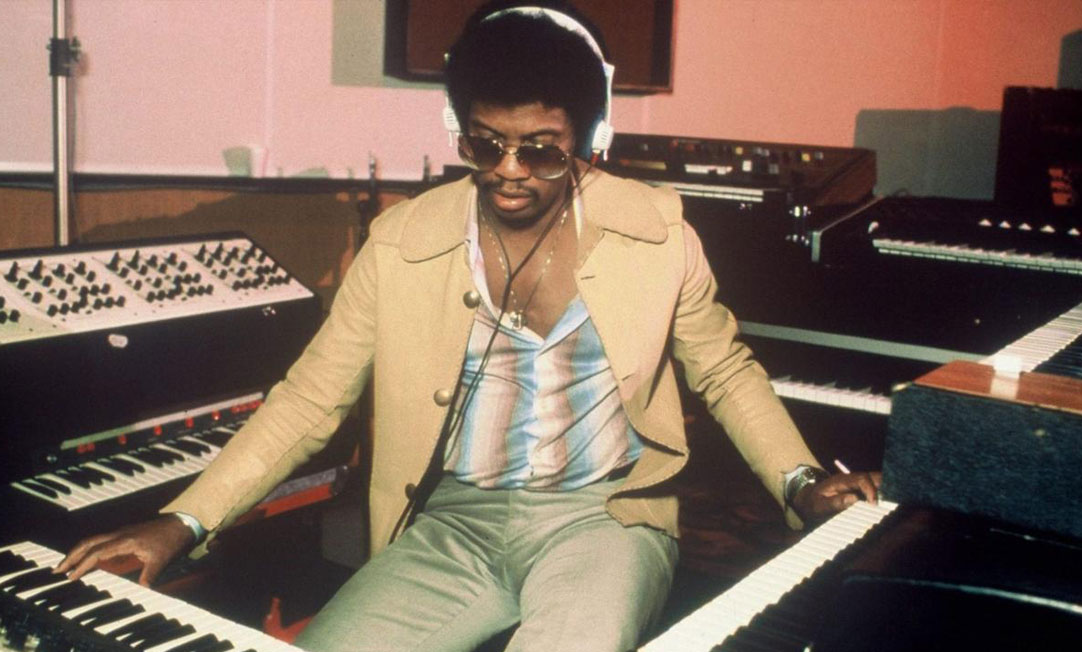Introduction
Herbie Hancock is an American jazz pianist, keyboardist, composer, and bandleader who has made an indelible mark on the world of music. Born on April 12, 1940, in Chicago, Illinois, Hancock is considered one of the most influential jazz musicians of the 20th and 21st centuries. His career, which spans over six decades, is characterized by constant innovation and a pioneering spirit that has pushed the boundaries of jazz and music as a whole. Hancock’s ability to blend genres such as jazz, funk, and electronic music has made him a key figure in the development of modern music, influencing generations of musicians across various genres.
Early Life and Career Beginnings
Classical Beginnings and Early Jazz Work
Herbie Hancock showed prodigious talent from a young age, starting with classical piano training. By the time he was 11, he had performed Mozart’s Piano Concerto No. 5 with the Chicago Symphony Orchestra. His transition to jazz came during his teenage years, and by the early 1960s, Hancock had moved to New York City, where he quickly became part of the vibrant jazz scene.
Miles Davis Quintet
Hancock’s big break came in 1963 when he joined the Miles Davis Quintet, one of the most innovative and influential jazz groups of the era. During his time with Davis, Hancock played a crucial role in the development of modal jazz and the incorporation of electronic instruments into jazz. His work with Davis, especially on albums like E.S.P. (1965), Miles Smiles (1967), and In a Silent Way (1969), helped to shape the future of jazz music.
Musical Style and Innovations
Jazz-Fusion Pioneer
In the 1970s, Herbie Hancock became a leading figure in the jazz-fusion movement, blending elements of jazz, rock, funk, and electronic music. His 1973 album Head Hunters is one of the most successful and influential jazz albums of all time, pioneering the use of synthesizers and funk rhythms in jazz. The album’s single “Chameleon” became an iconic track, showcasing Hancock’s ability to innovate while remaining accessible to a broad audience.
Electronic Music and Hip-Hop Influence
Hancock was one of the first jazz musicians to embrace electronic instruments, and he continued to push the boundaries of jazz throughout his career. In the 1980s, he achieved commercial success with the hit single “Rockit” from the album Future Shock (1983), which was one of the first mainstream tracks to feature scratching, a technique popularized by hip-hop DJs. The song won a Grammy Award for Best R&B Instrumental Performance and is often credited with helping to bring hip-hop elements into the mainstream.
Acoustic Jazz and Beyond
Despite his innovations in electronic music, Hancock has never abandoned his roots in acoustic jazz. Albums like Maiden Voyage (1965) and Empyrean Isles (1964) are considered classics of the genre, showcasing his sophisticated compositional skills and lyrical piano playing. Throughout his career, Hancock has seamlessly moved between acoustic and electric settings, often blending the two in ways that challenge traditional genre boundaries.
Major Albums and Hits
- “Maiden Voyage” (1965): One of Hancock’s most celebrated albums, featuring the classic title track and compositions that have become jazz standards.
- “Head Hunters” (1973): A groundbreaking album that fused jazz with funk and electronic music, becoming one of the best-selling jazz albums of all time.
- “Thrust” (1974): Continued the fusion explorations of Head Hunters, featuring the hit “Actual Proof.”
- “Future Shock” (1983): Marked Hancock’s foray into electro-funk, with the hit single “Rockit” that introduced hip-hop elements to a broader audience.
- “River: The Joni Letters” (2007): A tribute to Joni Mitchell, this album won the Grammy Award for Album of the Year, making Hancock one of the few jazz musicians to receive this honor.
Herbie Hancock Greatest Hits Playlist:
Herbie Hancock’s official YouTube channel:
https://www.youtube.com/channel/UC-w3aQyKGcYe9JnhnhExaNQ
Impact and Legacy
Influence on Jazz and Popular Music
Herbie Hancock’s influence extends far beyond the world of jazz. His willingness to embrace new technologies and genres has made him a key figure in the evolution of jazz fusion, electronic music, and hip-hop. Musicians across a wide range of genres cite Hancock as an influence, and his music has been sampled and covered by countless artists.
Grammy Awards and Recognition
Hancock has received 14 Grammy Awards throughout his career, including the prestigious Album of the Year award for River: The Joni Letters in 2008. His ability to innovate and remain relevant across multiple decades and genres is a testament to his enduring talent and vision.
Cultural and Social Contributions
Beyond his musical achievements, Hancock has also been active in cultural diplomacy and social causes. He is a UNESCO Goodwill Ambassador and has been involved in various initiatives promoting peace and intercultural dialogue through music. Hancock’s work in these areas underscores his belief in the power of music to bring people together and effect positive change.
Continued Relevance
Herbie Hancock remains an active and vital presence in the music world, continually exploring new sounds and collaborations. His career serves as a model of artistic integrity and innovation, and his influence continues to be felt in jazz and beyond.
References
- AllMusic – Herbie Hancock Biography: A comprehensive overview of Hancock’s career, musical style, and impact.
- Rolling Stone – Herbie Hancock’s Innovations: Discusses Hancock’s contributions to jazz fusion and his influence on modern music.
- Grammy Awards – Herbie Hancock’s Grammy Wins: Details the Grammy Awards won by Herbie Hancock throughout his career.
- UNESCO – Herbie Hancock’s Role as a Goodwill Ambassador: Highlights Hancock’s work in cultural diplomacy and his contributions to global peace initiatives.
Herbie Hancock’s legacy as a musician, innovator, and cultural ambassador is unparalleled. His contributions to music and society continue to resonate, making him one of the most important figures in the history of jazz and modern music.


Leave a Reply